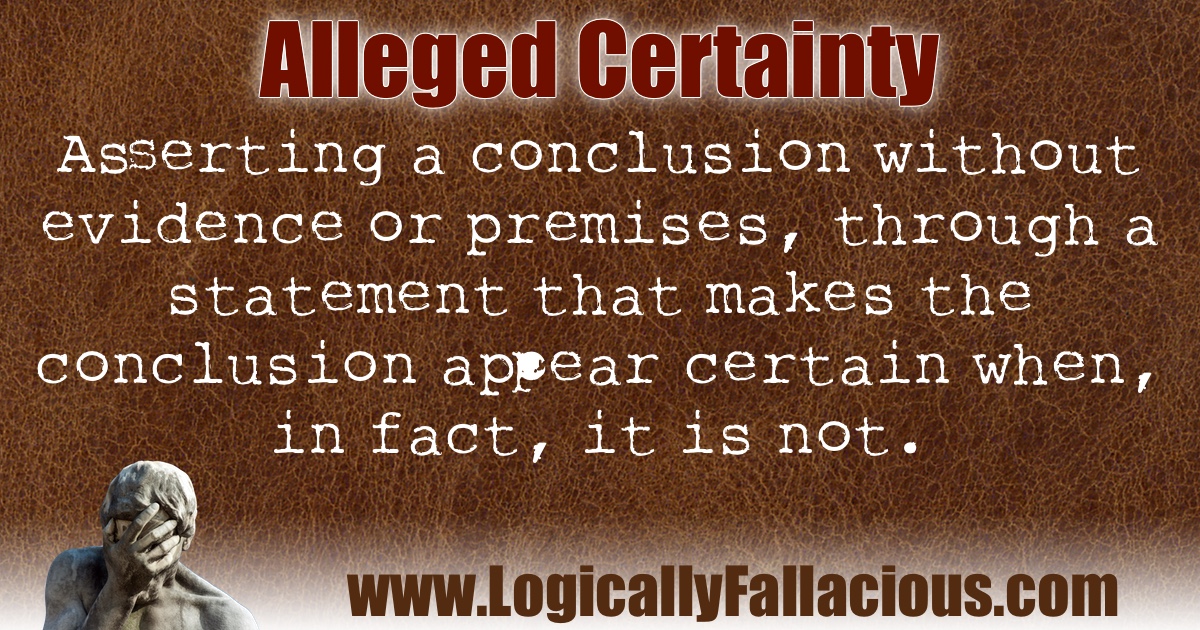(also known as: assuming the conclusion)
Description: Asserting a conclusion without evidence or premises, through a statement that makes the conclusion appear certain when, in fact, it is not.
Logical Form:
Everybody knows that X is true.
Therefore, X is true.
Example #1:
People everywhere recognize the need to help the starving children of the world.
Explanation: Actually, people everywhere don’t recognize this. This may seem like common sense to those who make the claim, and to many who hear the claim, but there are many people on this earth who do not share that view and need to be convinced first.
Example #2:
Everyone knows that, without our culture's religion, we all would be like lost sheep.
Explanation: Everyone does not know that. Sometimes, without stepping outside your own social or cultural sphere, it might seem like what you might accept as universal truths are simply truths within your own social or cultural sphere. Don’t assume universal truths.
Example #3:
There’s no question that our president is a major idiot.
Explanation: As tempting as a claim such as this one might be for some to accept as true, it must be recognized as the fallacy it is. Simply saying “our president is a major idiot,” then supporting that claim with evidence is very different than replacing the evidence with the statement of certainty (i.e., “there’s no question that...”).
Exception: Facts that would seem foolish not to assume, can be assumed -- but one should be prepared to support the assumption, no matter how certain one may be.
We all know that, without water, we cannot survive.
Tip: Replace the word “certain” in your life with the phrase "very probable" or "very confident."

References:
Yoos, G. E. (2007). Deceptions, blunders, and confusions. In Reframing Rhetoric (pp. 245–255). Palgrave Macmillan US. https://doi.org/10.1057/9780230607514_25